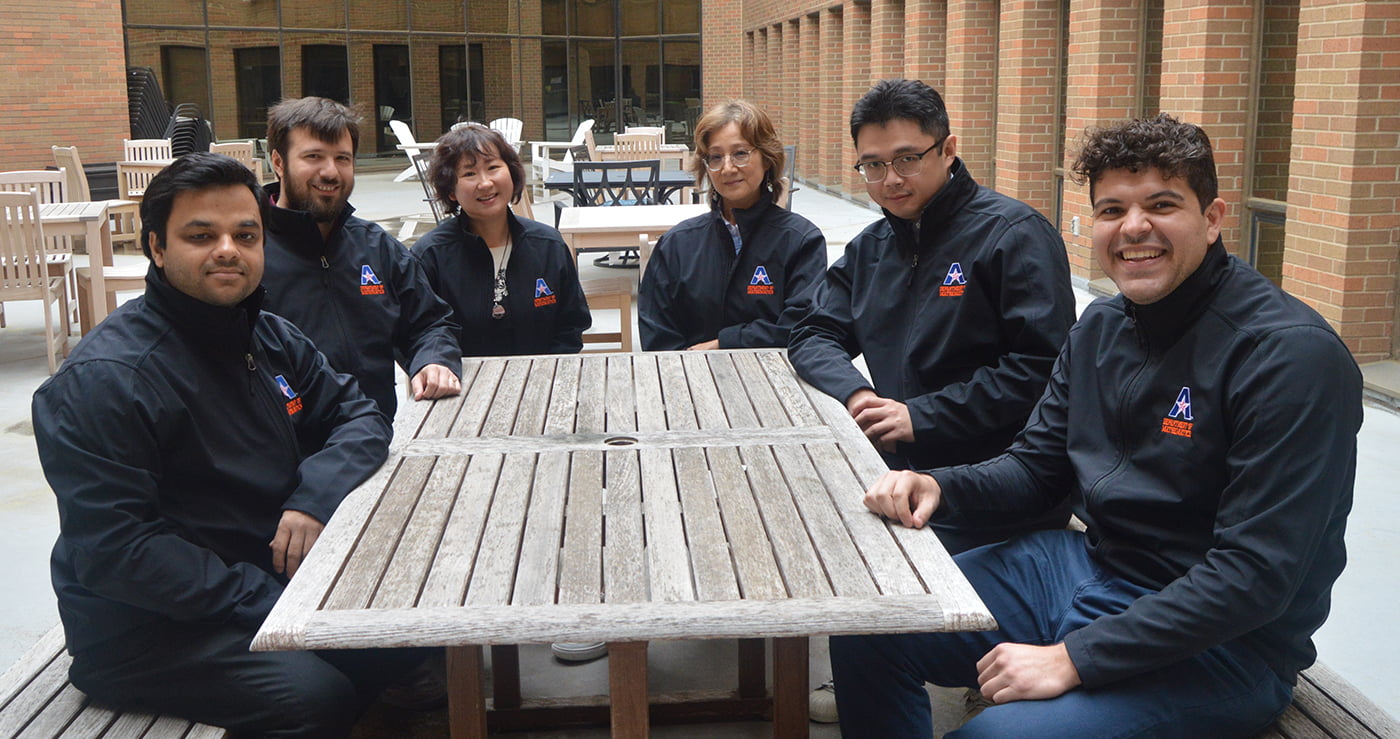Life Sciences Building, Room 206
501 S. Nedderman Drive
Box 19047
Arlington, TX 76019
Department of Mathematics launching new master's program in Fall 2023

The Department of Mathematics at The University of Texas at Arlington is offering a new master's degree program in applied statistics and data science which will equip students for careers in various disciplines.
The program, Master of Science in Applied Statistics and Data Science (M.S. in ASDS), will be offered starting in the fall 2023 semester and can be completed in three semesters (18 months). The program is designed for students with a wide range of backgrounds, including degrees in STEM fields and those with non-technical backgrounds, such as business majors.
The idea for the ASDS program was conceived by Minerva Cordero, UTA interim vice provost for faculty affairs and professor of mathematics, and Shan Sun-Mitchell, professor of statistics in the Department of Mathematics. They completed the initial steps of creating a proposal for the degree in the summer of 2021.
They were then joined in their efforts by Keaton Hamm, Pedro Maia, Suvra Pal, Li Wang, and Dengdeng Yu, all key faculty in statistics and data science in the Department of Mathematics. Their collaboration led to the development and approval of the degree proposal by the Texas Higher Education Coordinating Board in the summer of 2022. The program is being launched through the joint leadership of Sun-Mitchell, program director, and Sherry Wang, director of the Center for Data Science Research and Education.
“The ability to receive advanced training in statistics helps to set the M.S. in ASDS program apart from other master's degrees in data science,” Sun-Mitchell said.
Added Wang: “Integrating data science and statistics will equip students with a broader range of skills that are highly sought after in the job market, giving them a competitive edge over graduates from programs that focus solely on statistics or data science.”
Data science continues to be one of the fastest growing of all job fields. Numerous studies show the number of jobs requiring data science skills increasing at a much higher rate than almost any other field. This is due to the massive amounts of data generated by businesses and organizations and the need for skilled workers to analyze and interpret this data. The U.S. Bureau of Labor Statistics predicts that statistician and data scientist jobs will experience 36 percent growth between now and 2031, much higher than the average of 8 percent growth for all occupations combined.
“Our program will train students in statistical methodologies, data science, big data analytics, and machine learning to prepare work-ready students for statistics and data science positions in multiple disciplines and industries,” Sun-Mitchell said. “The program is project-based and is designed to help students learn how to interpret and analyze data, with a minimal prerequisite of mathematical and statistical knowledge and programming languages.”
The ASDS curriculum is designed for hands-on experience through in-class learning and opportunities for a summer Internship in different settings or a capstone research project. Students will increase their knowledge of statistical research, machine learning, and big data analytics and be proficient in various programming languages at a suitable level for data analytics.
"This new degree program will be a great asset for students who want to enter the rapidly growing field of data science, and it will give them the added versatility of equipping them with a solid foundation in applied statistics," College of Science Dean Morteza Khaledi said. "As we did with our bachelor's degree program in data science, we are helping lead the way in educating the workforce of the next generation, which will require a high percentage of data science proficiency."
The degree program consists of 30 total hours, including six required courses, three elective courses, and one research capstone project course or a summer internship. The program is in a cohort style to guarantee the most interactions and community-building between students and faculty.
"As we move towards a new era of big data, graduates with expertise in applied statistics and data science are being hotly pursued by high-tech industry, banks, national defense, marketing, and healthcare organizations," said Jianzhong Su, professor and chair of the UTA Department of Mathematics. "This unique program creates an excellent career pathway for students to attain a level of competency in applied statistics and data science and lead the next generation of the STEM workforce."
Admission requirements for the program include the following:
-
Undergraduate preparation equivalent to a baccalaureate degree in natural, physical, or social sciences, technology, engineering, mathematics, business, or related fields
-
Completion of a linear algebra course. Applicants may gain provisional admittance to the program without a linear algebra course but will be required to take one during the summer prior to starting the program
-
At least a 3.0 undergraduate GPA on a 4.0 scale
-
GRE scores are suggested but not required
-
Two favorable letters of recommendation from people familiar with the applicant's academic work and/or professional work
The first cohort of M.S. in ASDS students will take three core courses during the Fall 2023 semester. The courses are ASDS 5301 - Statistical Theory and Applications; ASDS 5302 - Principles of Data Science; and ASDS 5303 - Statistical and Scientific Computing I.
For more information about the M.S. in ASDS degree program, visit https://blog.uta.edu/sun-mitchell/ms-asds/.
--
The UTA College of Science, a Texas Tier One and Carnegie R1 research institution, is preparing the next generation of leaders in science through innovative education and hands-on research and offers programs in Biology, Chemistry & Biochemistry, Data Science, Earth & Environmental Sciences, Health Professions, Mathematics, Physics and Psychology. To support educational and research efforts visit the giving page, or if you're a prospective student interested in beginning your #MaverickScience journey visit our future students page.